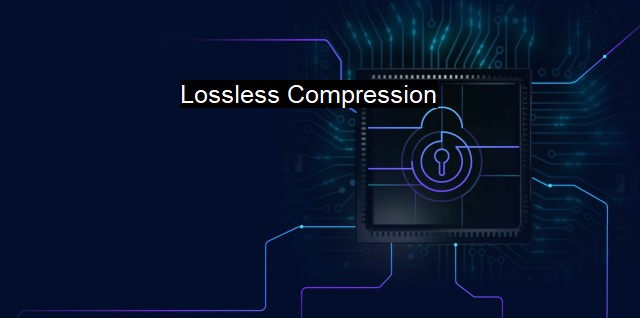What is Lossless Compression?
Secure Your Digital Assets with Lossless Compression Techniques: An Insight into Cybersecurity and Antivirus
Lossless compression is a type of data compression method that allows the original data to be entirely reconstructed from the compressed data. It is a widespread data compression technique utilized in many areas, especially in cybersecurity and antivirus technologies.In the cybersecurity context, lossless compression possesses immense utility for preserving the integrity and quality of sensitive data. With cyber threats becoming more complex and sophisticated by the day, it has become imperative for businesses and users to have absolute assurance that compressed files retain their original forms without any quality degradation during the decompression process.
One primary reason for employing lossless compression in cybersecurity is that it preserves the integrity and authenticity of data. when transmitting sensitive information over a network, businesses must ensure that there is absolutely no alteration of the data in any form, be it via modification, addition, deletion, or alteration. Lossless compression guarantees this by ensuring that each bit of the original data remains intact when it is decompressed.
Secondly, lossless compression brings about significant cost benefits in data storage and transmission. By reducing file sizes, businesses and individuals can save considerable resources on storage costs. smaller file sizes require less bandwidth for transmission, resulting in faster transmission times and potential savings in data transmission costs.
The applicability of lossless compression in the antivirus domain is particularly crucial. Modern-day antivirus software heavily relies on threat detection databases or libraries, which encompass extensive lists of known hazards. These databases constantly get updated with new threat types, leading to exponential size increases. Using lossless compression, these growing databases can be compressed to manageable sizes without losing any vital information. When the antivirus software scans a device for threats, these compressed databases are decompressed to their original, complete form, maintaining complete functionality in detecting potential hazards.
Lossless compression aids in the distribution and the regular updating of antivirus software. With the rise of internet-enabled devices, many users install and receive antivirus updates online. Lossless compression enables these typically large software files and updates to be reduced in size for efficient transmission over the internet. Users can, therefore, download and install these files swiftly, ensuring their devices stay protected with the most recent security enhancements without any significant delays.
The lossless compression approach plays a central role in the field of cybersecurity and antivirus. Its primary strength lies in its ability to preserve the quality and integrity of data, offering a feasible solution to manage growing data size in cybersecurity and antivirus applications. By utilizing this method to compress data without any loss of information, users can share and store data securely, keeping their systems safe from potential cyber threats. This inherently supports the cybersecurity ecosystem to update and adapt quickly while reducing costs and ensuring system efficiency. these properties make lossless compression an indisposable resource in the battle against increasingly complex and sophisticated cyber threats.

Lossless Compression FAQs
What is lossless compression and how does it relate to cybersecurity and antivirus?
Lossless compression is a type of data compression in which the original data can be reconstructed perfectly from the compressed data. In cybersecurity and antivirus, lossless compression can be used to reduce the size of files, which can help to reduce the storage and bandwidth requirements for storing and transmitting data. This can, in turn, help to improve the efficiency and speed of cybersecurity and antivirus systems.How does lossless compression work?
Lossless compression works by identifying patterns in the data and then using these patterns to encode the data in a more efficient way. This is done without losing any information, and the original data can be reconstructed perfectly from the compressed data using a decompression algorithm.What are the benefits of using lossless compression in cybersecurity and antivirus?
The benefits of using lossless compression in cybersecurity and antivirus include reduced storage and bandwidth requirements, improved efficiency and speed of data transmission and processing, and increased security by reducing the risk of data corruption or loss. Additionally, lossless compression can help to reduce costs associated with data storage and transmission.Are there any limitations to using lossless compression in cybersecurity and antivirus?
While lossless compression offers many benefits, there are some limitations to its use in cybersecurity and antivirus. One limitation is that it may not be as effective at reducing the size of certain types of data, such as images or videos, which can be more difficult to compress without losing some information. Additionally, the compression and decompression processes can be computationally intensive, which can impact the performance of cybersecurity and antivirus systems.| | A | | | B | | | C | | | D | | | E | | | F | | | G | | | H | | | I | | | J | | | K | | | L | | | M | |
| | N | | | O | | | P | | | Q | | | R | | | S | | | T | | | U | | | V | | | W | | | X | | | Y | | | Z | |
| | 1 | | | 2 | | | 3 | | | 4 | | | 7 | | | 8 | | |||||||